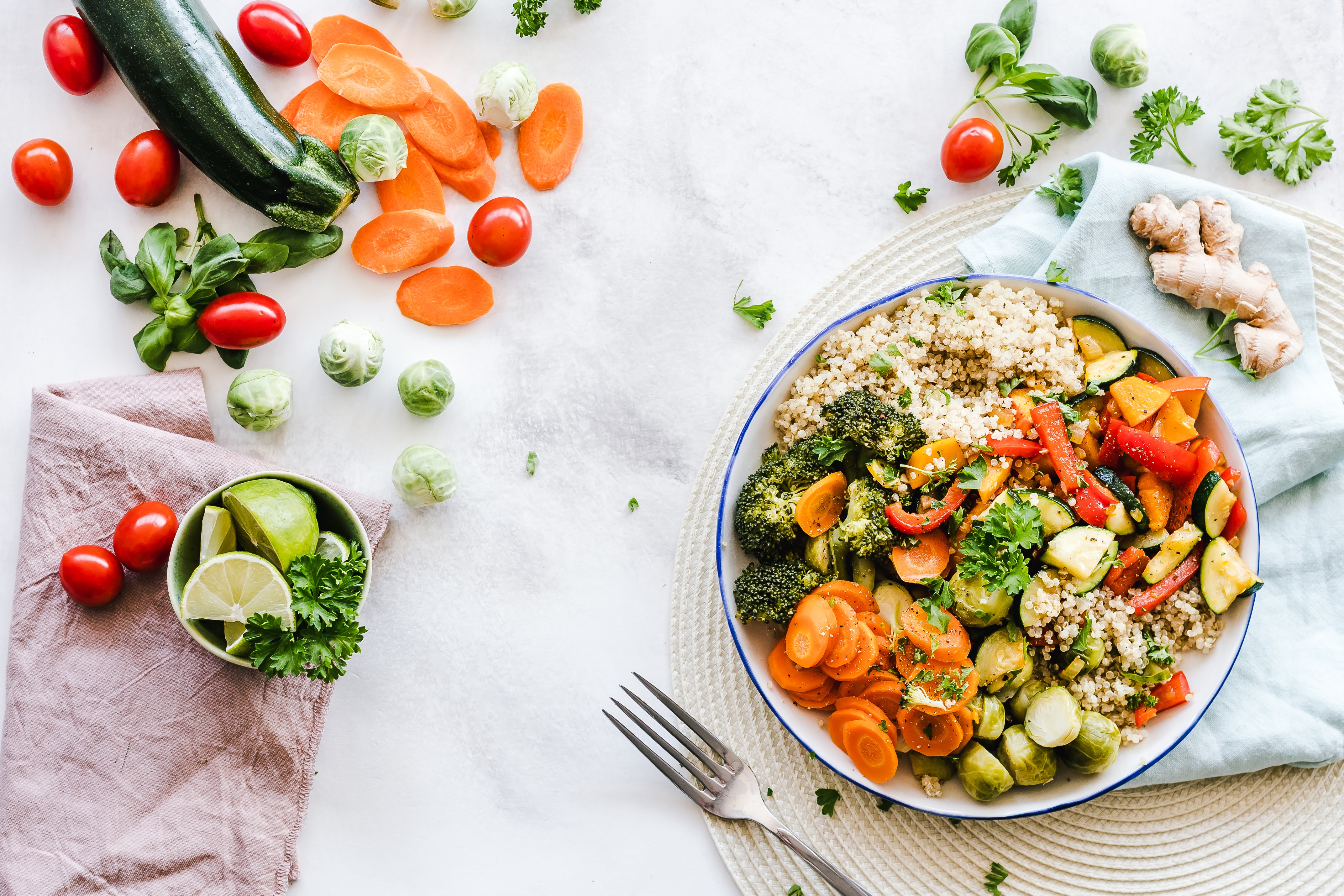Low carb diets have numerous benefits, including:
- Weight loss
- Stable mood & energy levels
- Blood sugar control
- Reduced cravings & appetite
- Lower blood pressure
- Higher good cholesterol
- Skin improvements
- Digestive support
- Even possibly increased lifespan
HOW TO START THE DIET:
- Limit protein intake. A keto diet or low carb diet is not a high protein diet! Low carb is generally higher in protein than keto, but be careful with both. High protein diets can stress the kidneys, and besides, excess protein converts to glucose. Make your protein intake a goal to meet each day, but more than that is not better.
- Use fat as a lever. We’ve been taught to fear fat, but don’t! Both keto and low carb are high fat diets. Fat is our source of energy as well as satiety. The key to understand, though, is that fat is a lever on a low carb or keto diet. Carbs and protein stay constant, and fat is the one you increase or decrease (push the lever up or down) to gain or lose weight, respectively. So if your goal is weight loss, eat enough fat to be satisfied, but there’s no need to “get your fats in” once you’re satisfied.
- Drink lots of water. This is especially crucial on a low carb or keto diet. Why? When you eat carbohydrates, your body stores the extra as glycogen in the liver, where they are bound to water molecules. Eating low carb depletes this glycogen, which allows you to burn fat – but it also means you are storing less water, making it easier to get dehydrated. Instead of the traditional recommendation of 8 cups of water per day, aim for 16 cups when following a low carb lifestyle.
- Keep up electrolytes. The major electrolytes in our bodies are sodium, potassium and magnesium. Because a low carb diet (especially a keto diet!) reduces the amount of water you store, this can flush out electrolytes and make you feel sick (called “keto flu”). This is temporary, but you can avoid or eliminate it by salting your food liberally, drinking broth (especially bone broth), and eating pickled vegetables. Some people also choose to take supplements for electrolytes, but it’s best to first consult a doctor that understands and supports keto/low carb lifestyles.
- Eat only when you are hungry. Get out of the mindset that you need to eat 4-6 meals per day or constantly snack. Eating too frequently on a keto or low carb diet is not necessary, and can affect weight loss. Eat when you’re hungry, but if you aren’t, don’t. Eating fewer carbs will make this much easier, as it naturally suppresses appetite.
- Focus on whole foods. Although eating natural or whole foods is technically not 100% required to restrict carbohydrates, eating processed foods will not help you get rid of cravings or be good for your body.
- Exercise. This is not required for a low carb diet, but recommended. You’ll feel better, improve your health, and if your goal is weight loss, it will happen faster!
CARB AMOUNTS:
Keto diet: under 20 grams net carbs a day
Low Carb: under 50 grams net carbs a day
NET CARBS is calculated by subtracting fiber and non-digestible sugars from the total carbs.
Non-digestible sugar substitutes which are ok on this diet are: Erythritol, Stevia in its pure form or mixed with xylitol or erythritol, monk fruit
You can use an app to help monitor your carbs: some examples are keto.app, MacroTracker, Stupid Simple Macros, MyPlate Calorie Counter, MacroTrak,
Recipes and meal plans can be found on: Wholesomeyum.com, everydayidreamaboutfood.com, obesitycode.com


